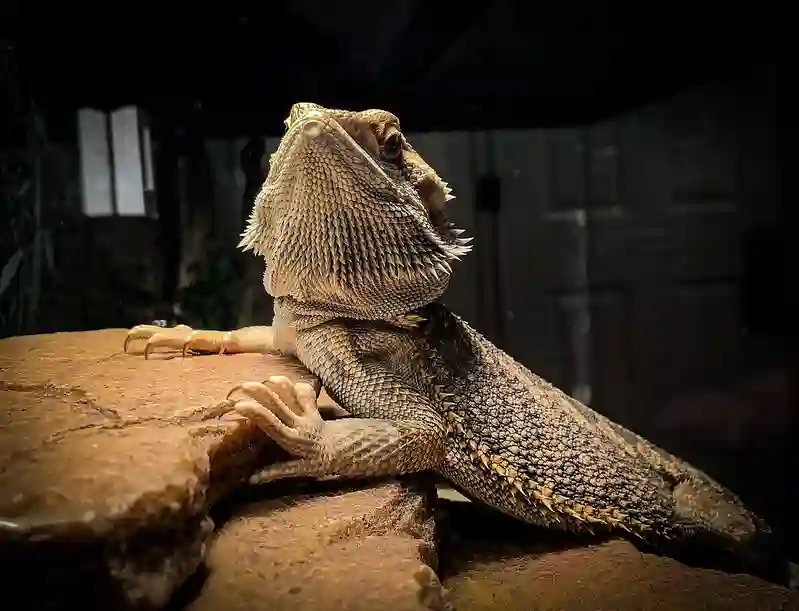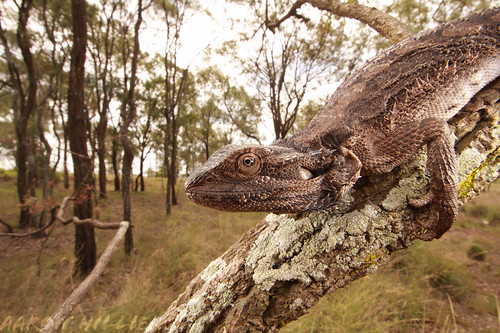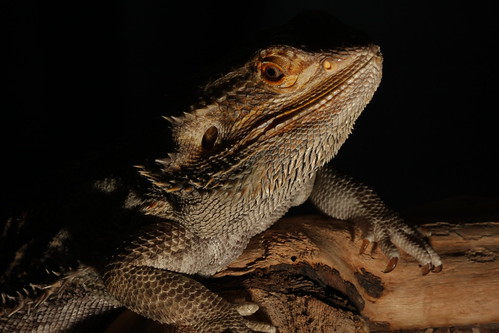Yes, bearded dragons can eat black soldier fly larvae. They are a nutritious and protein-packed food source that is rich in calcium, making them a great supplemental feeder for bearded dragons and other pet reptiles or amphibians.
They have a balanced calcium-to-phosphorus ratio that is ideal for reptiles, without the need for dusting.
BSFL are one of the most nutritional feeder insects that anyone can offer their bearded dragon or leopard gecko.
When feeding BSFL to a baby bearded dragon, they should eat insects 2-3 times daily, and BSFL should be added every time.
Although BSFLs are a great source of calcium for bearded dragons, the amount to feed them depends on their age and size.
It is recommended to feed bearded dragons as much as they can eat in 10-15 minutes, 2-3 times per day.
Nutritional Benefits Of Black Soldier Fly Larvae For Bearded Dragons
Black soldier fly larvae (BSFL) are becoming increasingly popular as a source of nutrition for bearded dragons.
These larvae are rich in protein, which is essential for the growth and maintenance of muscles, tissues, and organs in bearded dragons.
In addition to protein, BSFL also contains other nutrients such as calcium, phosphorus, and vitamins that contribute to the overall health of these reptiles.
One of the benefits of feeding bearded dragons with BSFL is their high digestibility.
BSFLs have soft exoskeletons and are easy to digest compared to other feeder insects such as crickets or mealworms.
This makes them an ideal choice for young or sick bearded dragons that may have difficulty digesting harder foods.
Furthermore, since BSFL pass through the gut easily, they promote gut health by preventing impaction or constipation.
Incorporating BSFL into a bearded dragon’s diet also adds variety and enrichment to their meals.
Are There Any Risks Associated With Feeding Black Soldier Fly Larvae To Bearded Dragons?
Black soldier flies larvae are a great source of nutrition for bearded dragons.
As discussed in the previous section, they are rich in protein and other essential nutrients that are crucial for the health and well-being of these reptiles.
It is important to note that there may be some health risks associated with feeding black soldier fly larvae to bearded dragons.
Firstly, digestive issues can arise if the larvae are not properly prepared or if they are fed in excess. This can lead to bloating, constipation, and other gastrointestinal problems.
Some bearded dragons may have allergic reactions to the larvae, which can cause skin irritation or respiratory issues.
Furthermore, there is also a risk of pesticide contamination if the larvae were raised on plants treated with harmful chemicals.
Ethical concerns may also arise as some people object to feeding live insects to their pets.
To ensure the safety of your bearded dragon, it is important to carefully source and prepare black soldier fly larvae before feeding them to your pet.
It is also recommended that you monitor your pet’s reaction after introducing this new food into their diet.
By doing so, you can help prevent any potential health risks associated with feeding black soldier fly larvae to your bearded dragon.
How Often Should Black Soldier Fly Larvae Be Offered To Bearded Dragons?
Feeding frequency is an important aspect to consider when offering black soldier fly larvae to bearded dragons.
While they are a nutritious and protein-rich food source, it is recommended to offer them as a supplement rather than a staple in the diet.
It is advisable to offer these larvae once or twice a week, in addition to other alternative foods like crickets, mealworms, and vegetables.
The digestion process of black soldier flies larvae is quite efficient in bearded dragons.
They contain high levels of calcium, which helps with bone growth and development.
Overfeeding can have an impact on growth and lead to obesity.
Therefore, it is recommended that dietary supplements are used in moderation and only as part of a varied and balanced diet for bearded dragons.
How To Feed Them Black Soldier Fly Larvae?
Feeding black soldier fly larvae to bearded dragons is an excellent way to provide them with essential nutrients.
Before feeding them, it is crucial to know the right feeding techniques.
To start with, ensure that the larvae are gut-loaded before offering them to the bearded dragons.
This means that they should have been fed a nutritious diet such as vegetables, grains, and fruits for at least 24 hours before being offered to the dragon.
Secondly, you can choose to feed the larvae live or dead. If you opt for live larvae, place them in a shallow dish where they can easily crawl out if not eaten by the dragon.
On the other hand, if you prefer dead larvae, you can freeze or dry them beforehand.
Finally, it is essential to monitor your bearded dragon’s behavior after feeding them black soldier fly larvae since overfeeding can lead to obesity and other health issues.
Apart from being a good source of protein and calcium, black soldier flies larvae offer a variety in the diet for bearded dragons.
Their availability and cost-effectiveness may pose a challenge depending on your location.
How To Store Black Soldier Fly Larvae Properly For Your Beardie?
Storing black soldier fly larvae properly is crucial to ensure that they remain fresh and safe for your bearded dragon.
The larvae should be kept in a clean and dry container with proper ventilation to prevent mold growth or bacterial contamination.
It is important to choose the best containers for storing larvae as they need a lot of space to move around.
Feeding techniques also play an important role in keeping the larvae fresh.
Do not overfeed them, as this can cause them to become sluggish and die off quickly.
Instead, offer small amounts of food regularly throughout the day, making sure to remove any uneaten food promptly.
For long-term storage, it is recommended to freeze the larvae in a sealed container with air removed from it. This will keep them fresh for up to six months.
Best Containers: Clear plastic containers with ventilated lids
Feeding Techniques: Offer small amounts of food regularly throughout the day
Long-Term Storage: Freeze in a sealed container with air removed from it



